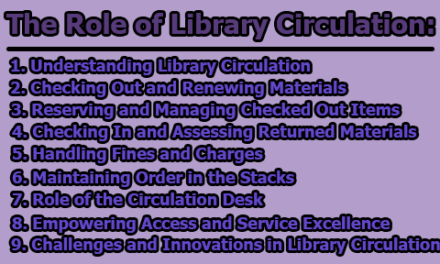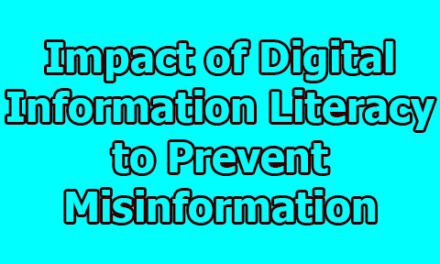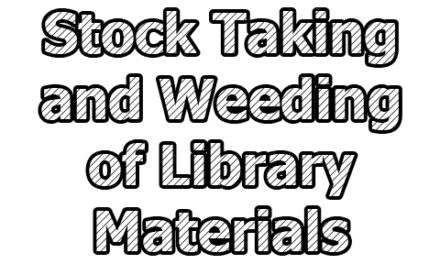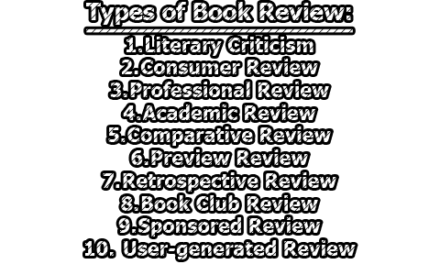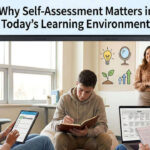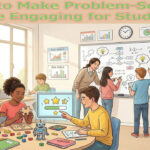Effective Communication Strategies with Publishers, Book Sellers, and Concerned Agencies for Building Library Collections:
A well-rounded and diverse library collection is crucial to the success of any educational institution or public facility. To achieve this, librarians and collection development specialists must effectively communicate and collaborate with publishers, book sellers, and other concerned agencies. In this article, we are going to know about the effective communication strategies with publishers book sellers and concerned agencies for building library collections
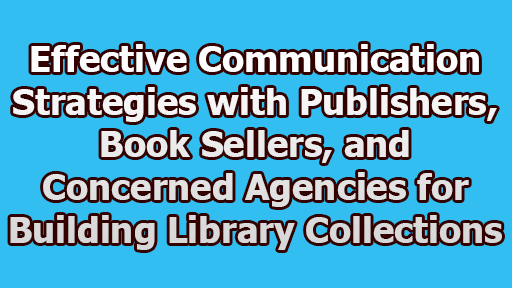
- Identifying Collection Needs: To identify the collection needs, start by conducting surveys or focus groups with library users. Gather feedback on their interests, preferences, and any areas where the current collection may be lacking. Engage with faculty members or subject experts to understand the academic requirements of the institution. Community involvement can be achieved through town hall meetings or outreach programs to gauge the interests of local residents.
- Developing a Collection Development Policy: A comprehensive collection development policy should cover several key aspects:
- Collection goals and scope: Clearly define the purpose and scope of the library collection, such as supporting academic curricula, promoting lifelong learning, or serving specific community interests.
- Budget allocation: Determine the budget for acquiring new materials and set aside a portion for unexpected opportunities or urgent needs.
- Selection criteria: Establish specific criteria for selecting materials, such as accuracy, relevance, diversity, and appropriateness for the intended audience.
- Weeding guidelines: Detail the process for regularly evaluating and removing outdated or damaged materials from the collection.
Ensure the policy is easily accessible to all staff involved in collection development and that it is periodically reviewed and updated to reflect changing needs and priorities.
- Researching Publishers and Distributors: Use online resources like publisher catalogs, databases, and review journals to identify publishers who produce high-quality and relevant materials. Investigate distributors known for prompt and reliable delivery services. Additionally, attending library conferences and industry events offers valuable opportunities to interact with representatives from publishing houses and distribution companies in person.
- Building Relationships with Publishers: When reaching out to publishers, consider the following tips:
- Personalize your communication: Address publishers by name and show genuine interest in their publications.
- Share your library’s vision: Explain your library’s mission and how the publisher’s books align with your collection goals.
- Request review copies: Ask for review copies of new and noteworthy titles to assess their suitability for your collection.
- Provide feedback: If you’ve previously acquired books from a publisher, share positive feedback on how those materials have been received by library users.
- Attend publisher events: Participate in webinars, author talks, or other events organized by publishers to build rapport and gain insights into their upcoming releases.
- Negotiating Purchase Terms: Effective negotiation is crucial for obtaining the best terms and conditions from publishers and sellers. Consider the following tactics:
- Highlight the library’s potential impact: Emphasize the library’s role in promoting reading, education, and community development.
- Bulk purchasing and long-term contracts: Committing to buying multiple copies or entering long-term contracts may lead to discounts and more favorable terms.
- Payment flexibility: Negotiate payment terms that align with your institution’s financial schedule.
- Free shipping or incentives: Request free shipping or additional materials as part of the deal.
- Engaging with Book Sellers: Local bookstores and online retailers can be valuable partners in building library collections. Here’s how to engage with book sellers:
- Visit local bookstores: Establish a relationship with nearby bookstores by introducing yourself and explaining your library’s mission.
- Attend book fairs: Participate in book fairs and conventions to explore a wide range of titles and meet representatives from various book selling platforms.
- Online partnerships: Collaborate with online booksellers to access a vast selection of titles and take advantage of online promotions and discounts.
- Bulk purchase discounts: Inquire about discounts for purchasing multiple copies of popular or relevant titles.
- Leveraging Library Consortia: Joining a library consortium can significantly benefit your library’s collection development efforts. Consortia offer collective bargaining power, allowing libraries to negotiate better prices and access to exclusive collections. Consortia members can also share resources and expertise, leading to cost savings and enhanced library offerings.
- Exploring Digital Resources and E-books: Digital resources and e-books are becoming increasingly popular among library users. Engage with digital content providers and e-book platforms to:
- Access a broader range of materials: Digital platforms often offer titles that may not be available in print format.
- Cater to user preferences: Some users prefer the convenience and accessibility of e-books.
- Ensure access to the latest releases: Digital versions may be available sooner than print copies.
- Save space: E-books can help conserve physical space in the library.
- Engaging Concerned Agencies: To collaborate with concerned agencies and organizations, consider the following steps:
- Identify potential partners: Research local cultural, educational, and governmental organizations that align with your library’s goals.
- Establish common interests: Demonstrate how collaboration can benefit both the library and the concerned agency.
- Seek grants and donations: Engage with agencies that offer grants or funding opportunities for library initiatives.
- Host joint events: Organize events or programs in collaboration with concerned agencies to promote mutual interests and foster community engagement.
- Showcasing Library Impact: To demonstrate the library’s impact, collect and share data that highlights the following:
- Circulation rates: Provide statistics on how often materials are borrowed.
- Program attendance: Report on the number of attendees at library events and programs.
- User feedback: Share positive feedback from library users regarding the value of the collection.
- Academic support: Demonstrate how the library’s resources contribute to academic success and research endeavors.
- Community engagement: Showcase how the library serves as a hub for community activities and knowledge-sharing.
- Maintaining Ongoing Communication: Effective communication requires ongoing efforts to keep publishers, sellers, and concerned agencies engaged and informed. Consider the following strategies:
- Newsletters and updates: Send regular newsletters or updates with highlights of recent acquisitions, upcoming events, and library achievements.
- Social media presence: Maintain an active presence on social media platforms to share relevant content and engage with stakeholders.
- Feedback and gratitude: Provide feedback to publishers and sellers on the impact of their materials in the library and express gratitude for their support.
- Networking events: Host networking events or appreciation days for publishers, sellers, and concerned agencies to strengthen relationships.
At the end of the day, we can say that building a well-curated library collection requires consistent effort and effective communication with publishers, book sellers, and concerned agencies. By employing the strategies and best practices outlined in this detailed guide, librarians and collection development specialists can form strong partnerships, secure favorable terms, and create a vibrant and diverse collection that enriches the lives of library users and fosters a love for reading and learning in the community. Effective communication is the foundation for establishing lasting collaborations that contribute to the growth and success of the library.
FAQs:
Why is effective communication with publishers, booksellers, and concerned agencies important for building library collections?
Effective communication is essential for building library collections as it allows librarians and collection development specialists to establish strong relationships with key stakeholders. Publishers, book sellers, and concerned agencies play a pivotal role in providing access to a wide range of materials that align with the library’s goals and meet the needs of its users. By fostering open and productive communication, libraries can negotiate better purchase terms, access exclusive titles, and secure funding or grants to enhance their collections.
How can I identify the collection needs of my library?
Identifying the collection needs involves gathering feedback from various sources. Conduct surveys or focus groups with library users to understand their interests and preferences. Engage with faculty members, subject experts, and educators to assess academic requirements. Additionally, involve the community by hosting town hall meetings or outreach programs to gauge local interests and needs.
What are the benefits of joining a library consortium for collection development?
Joining a library consortium offers several benefits for collection development. Consortium members can collectively negotiate with publishers and booksellers, which often leads to better discounts and favorable terms. Additionally, libraries within the consortium can share resources, expertise, and knowledge, resulting in cost savings and a more diverse collection. Being part of a consortium also provides access to exclusive collections and specialized services that individual libraries may not have on their own.
How can I effectively negotiate purchase terms with publishers and booksellers?
Effective negotiation involves several strategies:
- Highlight the library’s potential impact and value to the community.
- Commit to bulk purchasing or long-term contracts to secure better discounts.
- Request flexible payment options that align with the library’s financial schedule.
- Demonstrate a track record of successfully promoting and utilizing books from the publisher or seller.
- Inquire about free shipping, additional materials, or exclusive offers.
How can I showcase the impact of my library to publishers, booksellers, and concerned agencies?
Demonstrating the library’s impact involves collecting and sharing relevant data, such as:
- Circulation rates: Provide statistics on how often materials are borrowed.
- Program attendance: Report on the number of attendees at library events and programs.
- User feedback: Share positive feedback from library users regarding the value of the collection.
- Academic support: Showcase how the library’s resources contribute to academic success and research endeavors.
- Community engagement: Highlight how the library serves as a hub for community activities and knowledge-sharing.
How can I engage concerned agencies and organizations to support my library’s collection efforts?
To engage concerned agencies, consider the following steps:
- Identify potential partners that align with your library’s goals and values.
- Establish common interests and show how collaboration benefits both parties.
- Seek grants or funding opportunities offered by concerned agencies to support library initiatives.
- Host joint events or programs to promote mutual interests and foster community engagement.
How can I keep publishers, booksellers, and concerned agencies informed and engaged on an ongoing basis?
Maintaining ongoing communication is crucial for sustaining relationships. Consider these strategies:
- Send regular newsletters or updates with highlights of recent acquisitions, upcoming events, and library achievements.
- Maintain an active presence on social media platforms to share relevant content and engage with stakeholders.
- Provide feedback to publishers, sellers, and concerned agencies on the impact of their materials in the library and express gratitude for their support.
- Host networking events or appreciation days to strengthen relationships and foster a sense of partnership.

Library Lecturer at Nurul Amin Degree College

